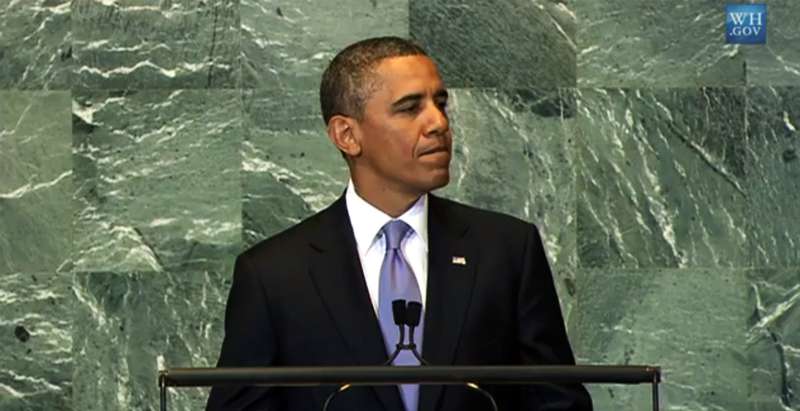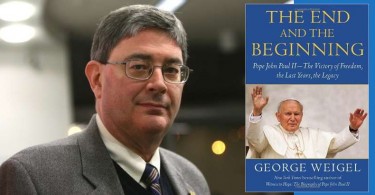The future may not belong to 15-year-old Malala Yousafzai. An outspoken advocate of education for girls, Malala bravely took on the Taliban in her troubled region in Pakistan. Malala blogged under a pen name for the BBC, detailing the condition of girls in her hometown and making a persuasive case that Pakistani girls did not violate Islamic law by wanting to learn and have opportunities.
For these supposed offenses, Taliban terrorists stormed the bus Malala rode home with her classmates from her father’s school. Shooting Malala in the head, Taliban thugs silenced her and sent a horrifying warning to others who seek to improve the status of women.
In sharp contrast to the violent anti-American demonstrations in the Middle East following the attacks on our embassies, Pakistanis voiced outrage that their co-religionists had harmed Malala and her classmates. After all, people of all religious faiths can recognize evil when they see it and unite against injustice.
Could it be that the most pressing need for women around the world might be something other than government-provided contraception? In reality, what women most need is the ability to gain an education. All women everywhere need stable governments that enforce the rule of law, promote liberty, freedom of worship and economic opportunities.
Two weeks after the attacks of September 11, 2012 that killed the U.S. ambassador to Libya, President Obama appeared before the United Nations to address the leaders gathered there.
“We must speak honestly about the deeper causes of the crisis,” Obama said, “because we face a choice between the forces that would drive us apart and the hopes that we hold in common.”
Now there’s an understatement. A terrorist mob brutally murders our government’s highest-ranking representative to Libya, and we need to “speak honestly” about “deeper causes.”
A decade ago, after the attacks on September 11, 2001 against our homeland, Obama responded with the usual left-wing pablum. He called for examination of root causes and wanted to “draw some measure of wisdom from this tragedy.”
Obama blamed the original 9/11 on “a fundamental absence of empathy on the part of the attackers” which “grows out of a climate of poverty and ignorance, helplessness and despair.”
In fact, the 9/11 attackers were “neither embittered sons of poverty nor especially hopeless or ignorant,” as Mark Bowden has reported. “Most were well-to-do young Saudis whose families had shipped them overseas for expensive college educations.”
At the United Nations, Obama had the opportunity to expose the plight of girls like Malala. He had the chance to advocate for the rights of women across the globe to have access to education and the opportunity to advance themselves.
Obama could have channeled the spirit of Ronald Reagan at the Berlin Wall. Obama could have addressed al-Qaida, the Taliban and terrorists everywhere with a challenge to tear down the hatred.
Two weeks after the murder of our ambassador and three other Americans, Obama’s speech had the attention of the entire world, rather than just the U.N. news junkies (all 10 of them). His speech could have resounded through the ages.
Instead, Obama sounded like an apologist for those who violently attacked our embassy personnel. His U.N. speech seemed to suggest that, although their rage was understandable, they had gone too far. (As if he were saying to the attackers, “There, there, we feel your pain.”)
“The future must not belong to those who slander the prophet of Islam.” It would be bad enough if this were just another tired old trope from the blame-America-first crowd. But this was our president’s statement to the world in response to a terrorist attack that assassinated our ambassador.
Only after his speech, 17 days after the Benghazi attacks, would Obama admit that the events of September 11, 2012 were acts of terrorism. Romney correctly made the point in the debates, as CNN’s Candy Crowley admitted — but only after the debate was over. Crowley had suggested the opposite while performing her duties as moderator.
If Obama cares about the world’s women and wants to help them, he should have deployed his oratorical skills against the primitives who would shoot a teenage girl for blogging in favor of female education, murder a U.S. ambassador, sexually abuse a female journalist.
Obama should have taken a page from Reagan: “Message to terrorists everywhere … you can run but you can’t hide.”
The future may not belong to Malala or her classmates if we continue to apologize for America. The future may not belong to the girls in her region who may have been inspired by her bravery but now are cowed into silence and submission.
The future can belong to those who know that the true unifier is a belief in human dignity, regardless of color, creed, or country, the belief that each person deserves to enjoy life, liberty and the pursuit of happiness. That message of freedom is clear in any language.
First published on the Daily Caller in November 2012








